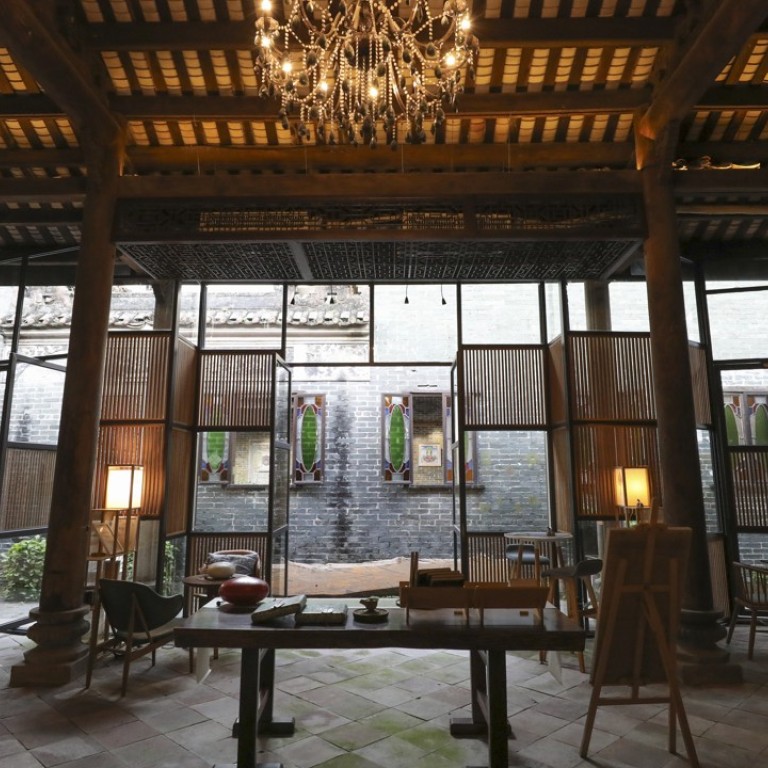
Bridge from Hong Kong puts hip Zhuhai heritage village, restaurants and jazz within easy reach
- Ancestral halls, temples, heritage inns, an international jazz festival, vegetarian food – Beishan Art District shows another side to Pearl River Delta city
- Just 6km from delta bridge, its narrow alleys and tree-shaded squares are inviting
Zhuhai is not a Chinese city you would automatically associate with heritage and the arts, hip vegetarian eateries and Parisian-style street culture.
The city at the western end of the new bridge across the Pearl River estuary from Hong Kong is often dismissed – unfairly – as a characterless industrial port with a few tacky and lacklustre tourist landmarks.
Five Guangdong heritage sites to visit this autumn
However, those that do venture to Zhuhai via the 38km bridge, or make the 55-minute ferry journey from Hong Kong’s Macau or China ferry terminals, can appreciate another side to the city – the nascent heritage district of Beishan Village.
The area has been relabelled the Beishan Art District and is 6km south of where the new bridge makes landfall in Zhuhai. Its narrow alleys, parks and squares boast temples, ancestral halls, coffee shops, heritage inns, an old theatre converted into a cultural space, vegetarian restaurants and a jazz academy.
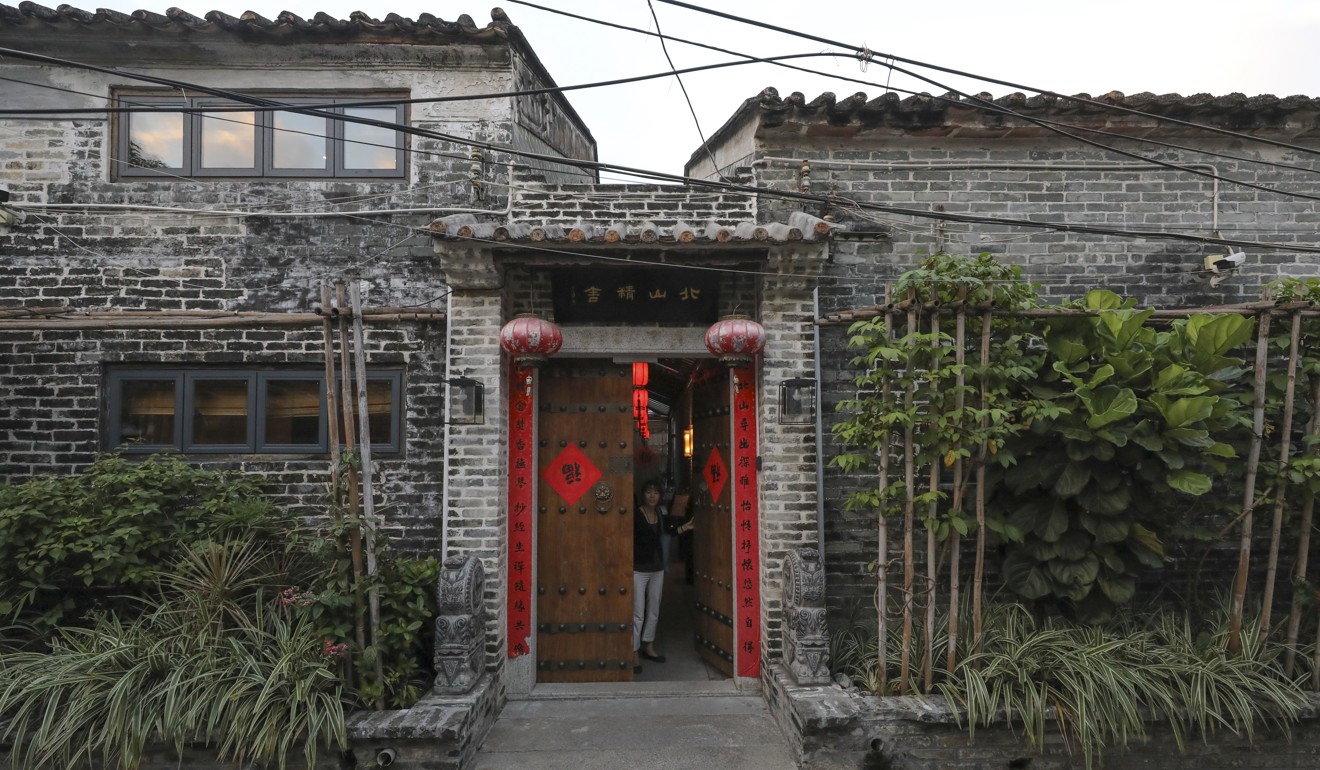
Somehow people in this part of Zhuhai have resisted the urge to sell out to property developers and see Beishan subsumed into the high-rise concrete skyline. The busy, compressed streets are too narrow for cars, and life here is reminiscent of that in one of the urban villages of neighbouring Shenzhen, albeit gentrified and refined.
In North Beishan Road, behind huge, wooden double doors lies the Zen Aesthetics Inn. A long, faded grey-brick corridor leads to a roofless courtyard – an unexpected urban oasis, complete with turtle pond, decorative ceramics and potted shrubs. The twangs of a guqin music recital can be heard from within the lobby.
The inn was converted from a Qing dynasty house, and tea is served while half a dozen students play the seven-stringed wooden instrument, a mainstay of music in China for the past 3,000 years.
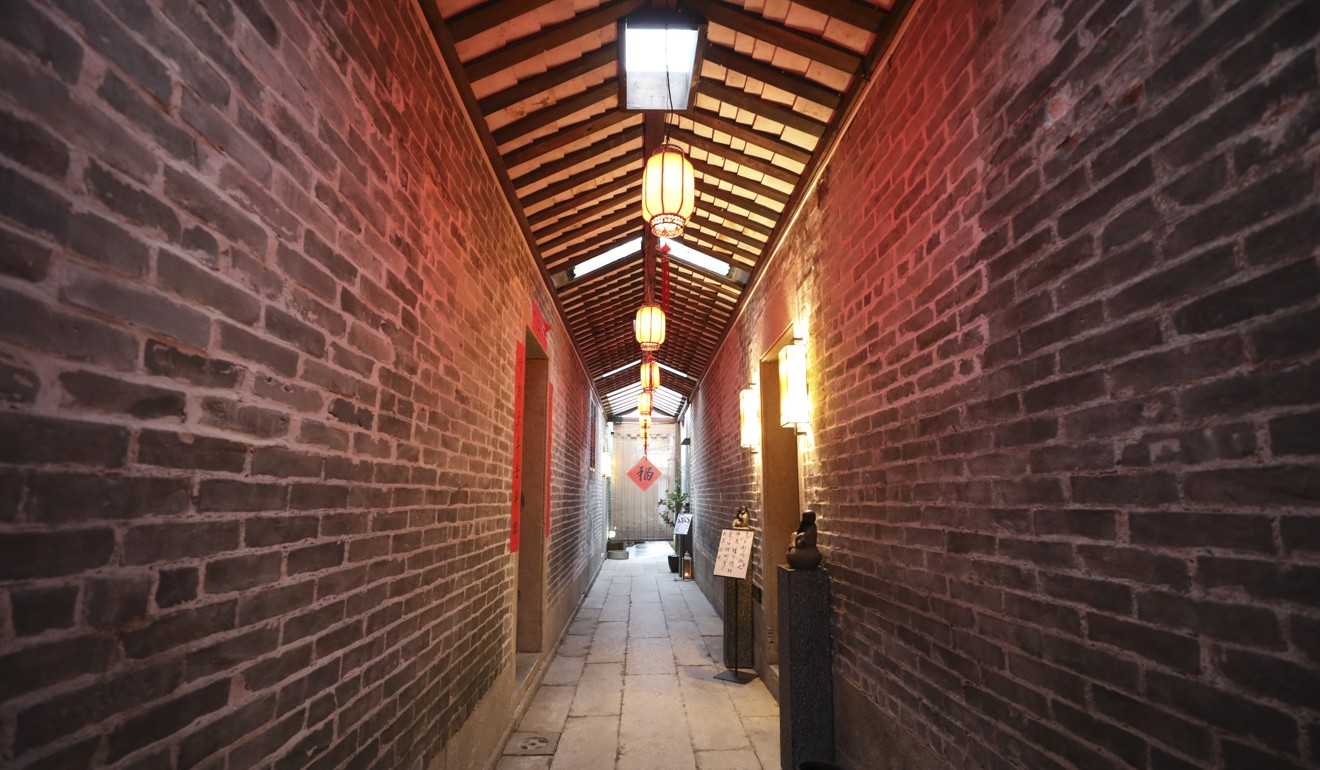
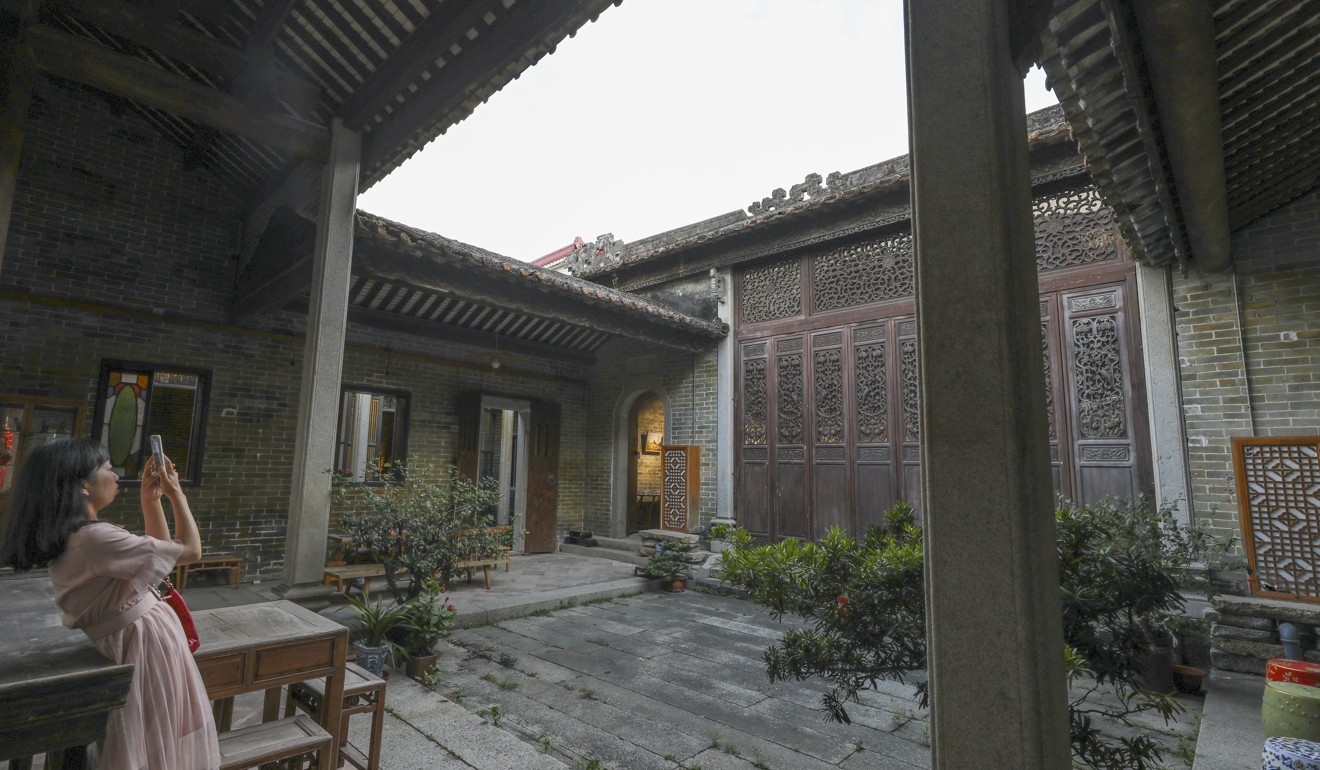
Walking south along the narrow alley from the inn, the visitor comes upon a typical modern Chinese village scene, of construction rubble, excited children, butchers’ shops and scruffy-looking hairdresser salons decorated with faded portraits of Chairman Mao. Within 100 metres, though, the alley opens out onto a tree-shaded square bordered with restored Lingnan buildings, grey brick halls and the old Beishan village theatre.
The crumbling, 150-year-old theatre was bought by local entrepreneurs the Xue brothers, who run a successful language school, and has been converted into an attractive exhibition and performance space.
Reinhold Lee is its manager. Lee says the Beishan area is becoming increasingly popular as a weekend destination for locals and for foreigners living in or visiting Macau, who cross the land border from the former Portuguese territory about 3km to the south.
Music is an important part of Beishan’s appeal. “There were about 500 attendees for the regular jazz festival held here in October and we are expecting 8,000 visitors for the international music festival scheduled for next April,” he says.
China’s city slickers check into boutique hotels for short getaways
The highly rated Espen Berg Trio, from Norway, were the star attraction at this year’s event, held on 14 October as part of the “Beishan East-West Cultural Hub” project, aimed at providing a platform for arts, entertainment and training. More than 200 musicians from about 50 countries have appeared at the festival in the past nine years, and it is a fixture on the Asian jazz calendar.
Across the small square, a Parisian-style bistro has been built from refurbished steel shipping containers. Standing behind the counter, founder and proprietor Michelle Li is barricaded in by piles of exquisite French-style pastries and bread.
While I sit at a table outside on the terrace, enjoying a coffee and an enormous home-made cinnamon bun stuffed with blueberries, Li explains how her career as a teacher introduced her to baking and how that led her to own a bistro in Beishan.
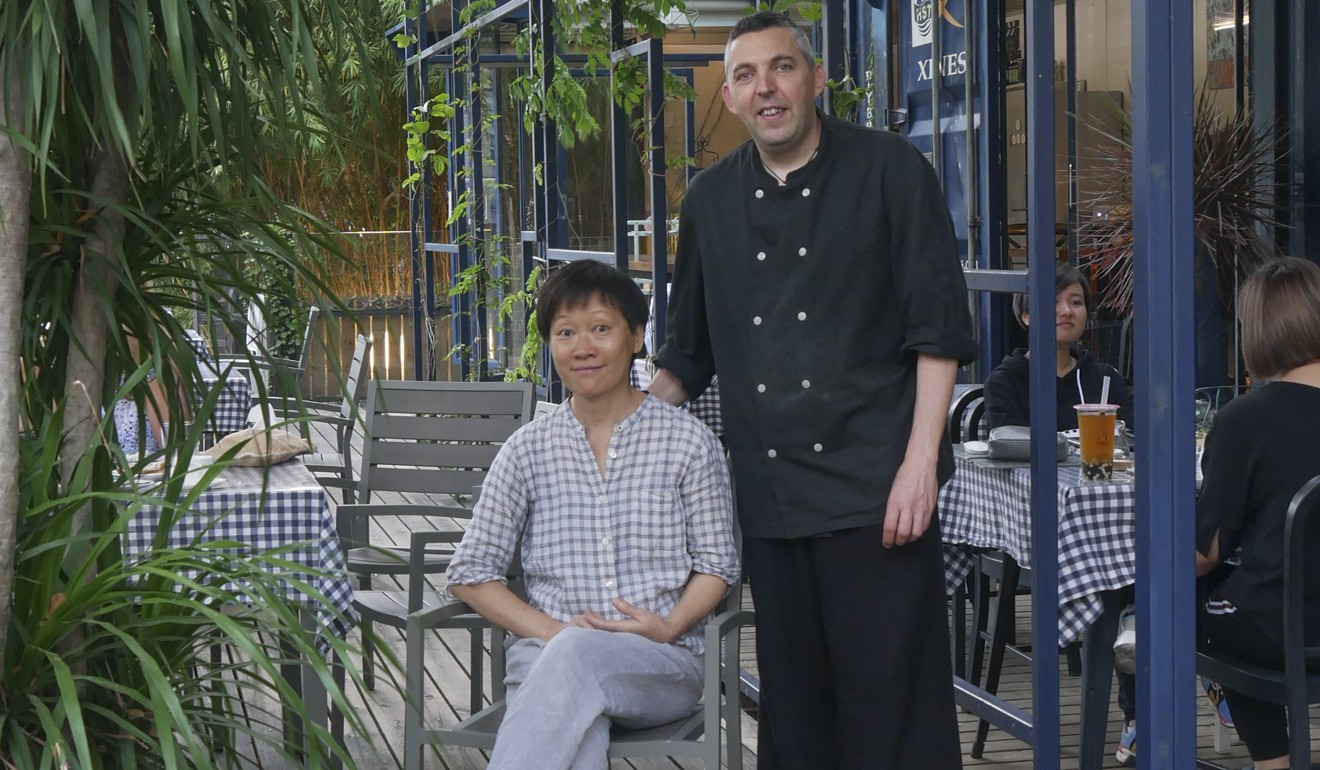
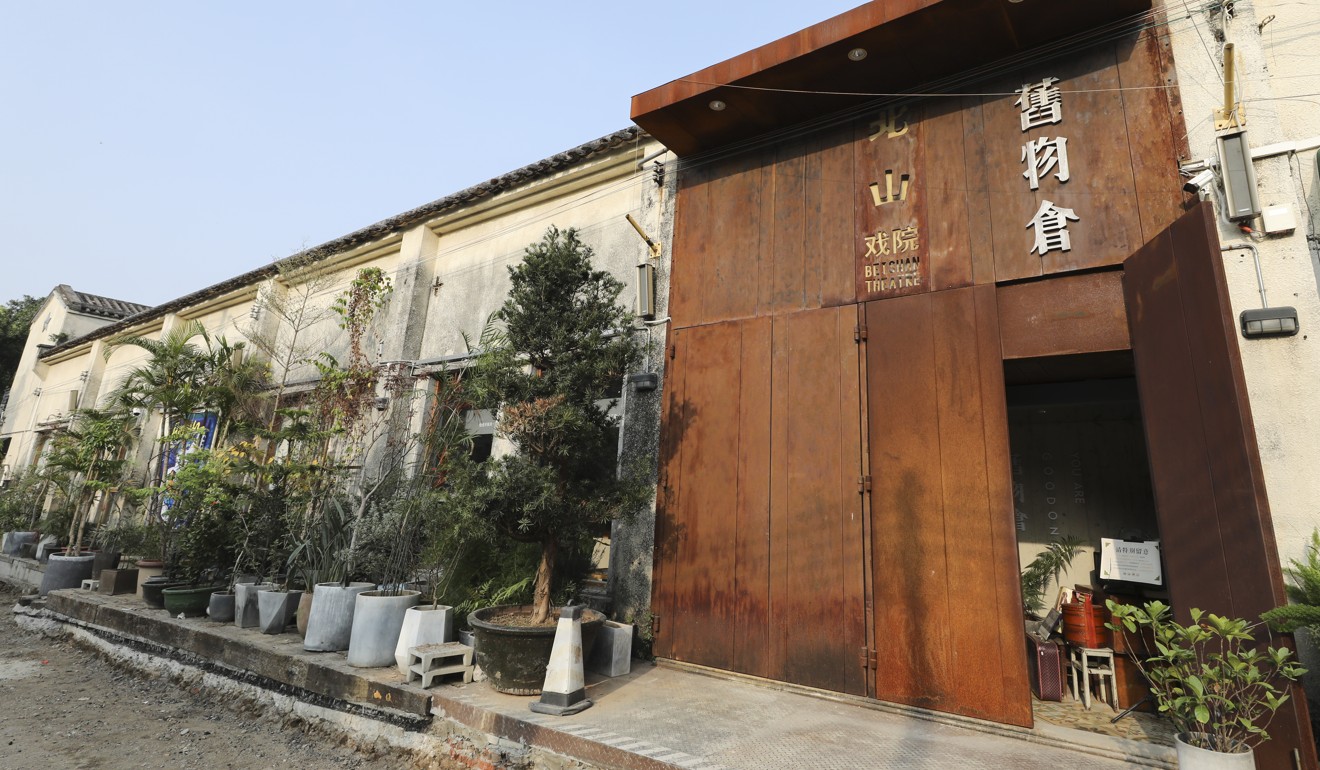
She met her French head chef, Sebastian Durand, at a baking school in Dali, a tourist town in Yunnan province, southwest China where he was studying the martial art of wing chun while moonlighting as a catering consultant.
Durand nicknamed Li’s business the Buddhist Punk Vegetarian Bistro. “I am not a Buddhist and I am not really a punk either,” says Durand, who is from Lyons, but the name has stuck. Open less than a year, it specialises in pastries and vegetarian cuisine. He says the Beishan area is attracting more foreign visitors and they hope this trend will increase further now that the cross-delta bridge is open.
There are a number of upmarket restaurants in the area as well as the traditional noodle shops, dai pai dong and street dumpling sellers. The Suhe Vegetarian Lifestyle fusion restaurant offers a modern take on Cantonese vegetarian food within the lantern-lit courtyard of an ancestral hall. The clay pot of sizzling broccoli with tofu, several sculpted mounds of marinated spinach in a mustard sauce, plus a freshly baked mushroom pizza are delicious, impeccably presented and very affordable.
Use delta bridge, Hong Kong express rail link to see China heritage
Sunday night is jam night at the Golden Jazz club on the ground floor of the Zhuhai Contemporary Music Institute and entrance is free from 8pm. A few people have gathered to relax, sip cold European beer and watch a jazz quartet glide their way through some standard numbers.
The stylish Beishan Ju private hotel in an old industrial building has a jazz theme. A Pearl five-piece drum kit donated for the jazz festival still occupies its lobby. The hotel would not look out of place in New York or the hipster zone of Shoreditch, in East London.
There is a work space and lounge on the first floor, where a few people are tapping earnestly on MacBooks or leafing through a library of jazz history books and biographies, while coffee is served.
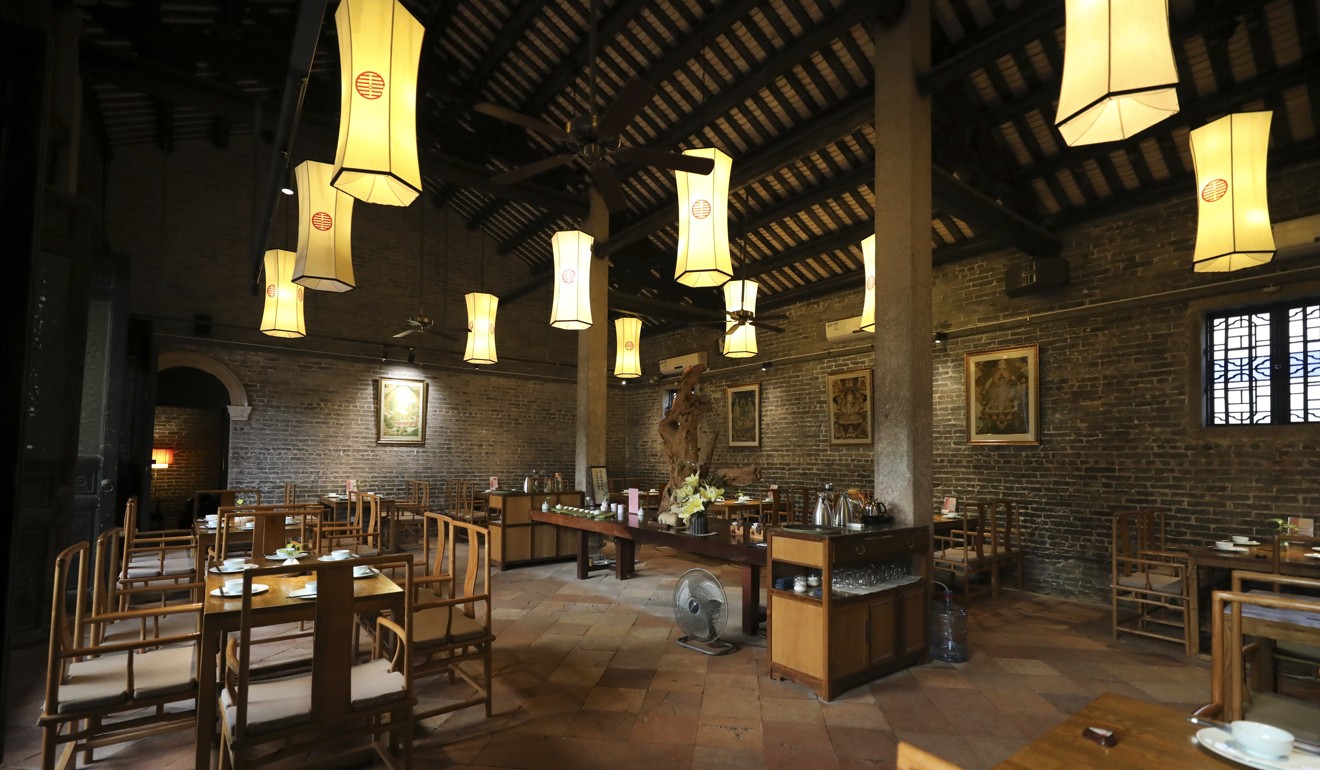
There is an African art space too and, with a subtle nod to the growing Chinese demand for “red tourism”, there is a small museum devoted to Yang Pao An, who grew up nearby, joined the Chinese Communist Party within months of its foundation in 1921, and was assassinated in 1935.
Perhaps the most enjoyable pursuit in Beishan is to wander aimlessly and peer into the courtyards, alleyways and halls that make up the neighbourhood.
A good example of what you will find is the recently restored Yang ancestral hall, which also houses a bookshop and arts centre.
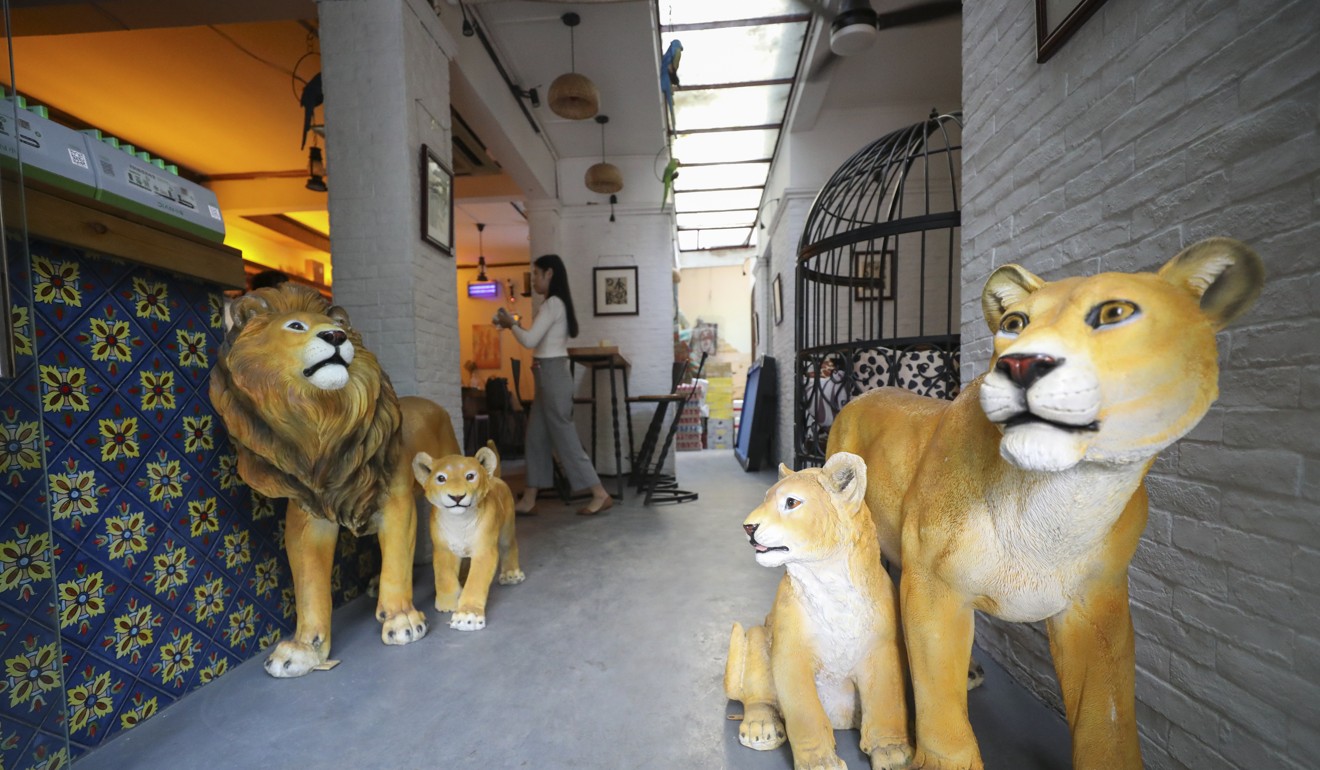
Shafts of sunlight illuminate dusty grey walls, ornately carved black hardwood doors, roof tiles, potted plants and carp ponds, elements of a traditional Chinese aesthetic long gone in Hong Kong and eradicated in many parts of China during the Cultural Revolution.
This stylish corner of Zhuhai is small – the entire area must be little more than four hectares – and it is still a work in progress. It is well worth a visit though, and deserves credit for imaginatively reinventing Qing dynasty Lingnan buildings in creative ways that surpass anything in Hong Kong.
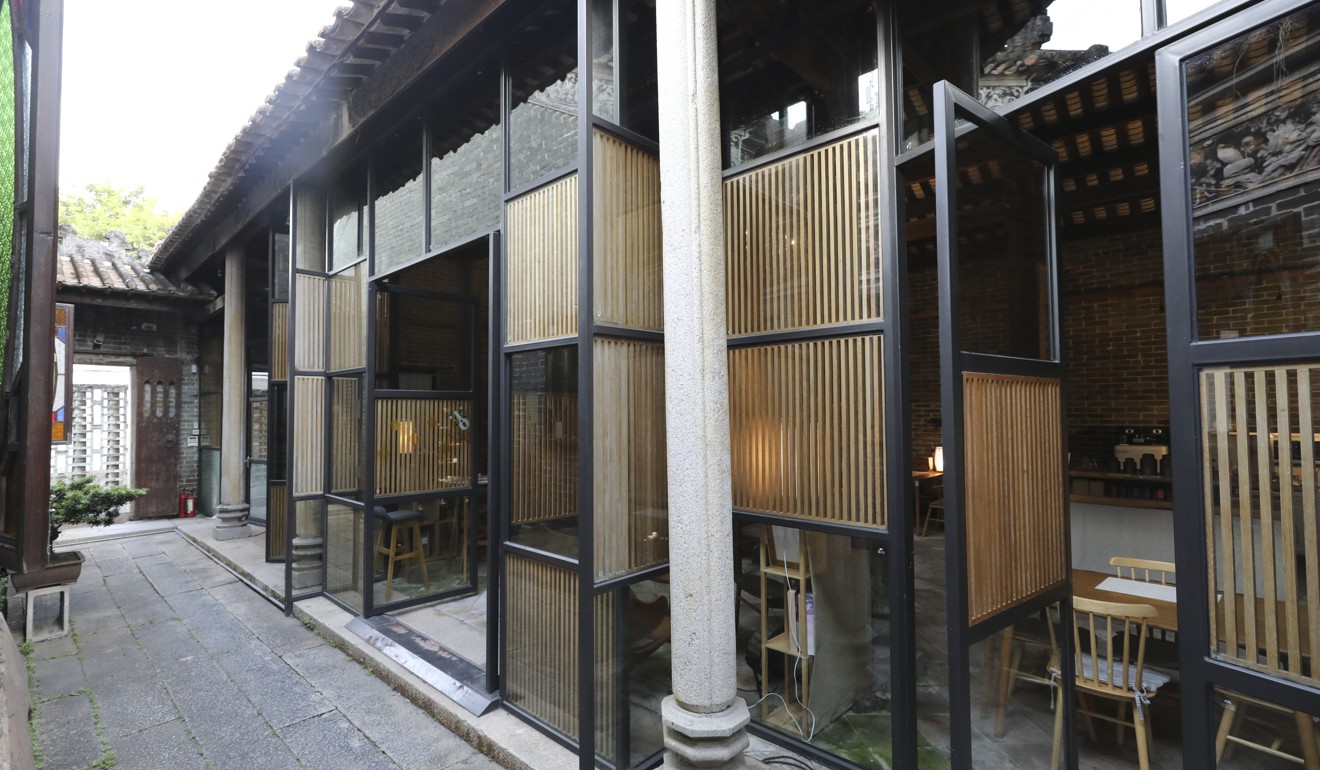
Where to go:
Beishan theatre: Hosts cultural events and performances.
Zhuhai Contemporary Music Institute, 76 Beishan Centre Street, Beishan Village. Golden Jazz club on the ground floor has free jam sessions on Sunday night.
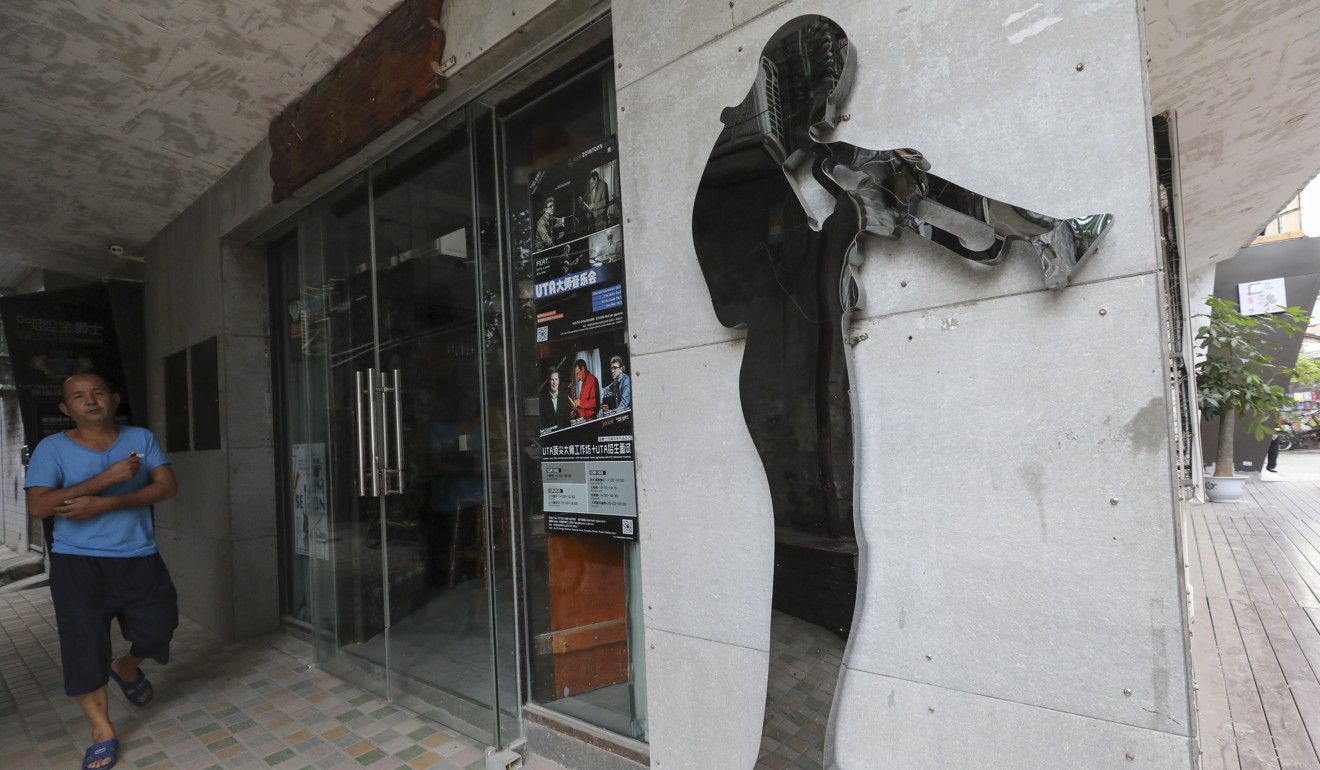
Buddhist Punk Vegetarian Bistro: Beishan Road, Nanping, Zhuhai (tel: +86 13411498187) for French pastries and Western- style vegetarian cuisine.
Zen Aesthetics Inn: No. 28, Beishan Street North Lane, Xiangzhou District (tel: +86 756 867 5558). Stylish accommodation in a converted Qing dynasty building.
African art and culture centre: 1, Lane 5, Beishan Main Street North (tel: +86 137 0187 3422). The centre houses a bar, coffee shop and African art.
Getting there
New bus services across the bridge from Hong Kong are still being finalised, but most cross-border transport operators offer pickups from major points in the city to Zhuhai city centre. Foot passengers can catch transit buses to Zhuhai every five to 10 minutes; they take about 45 minutes and cost HK$80 each way.
How China is leveraging Confucianism to boost cultural tourism

